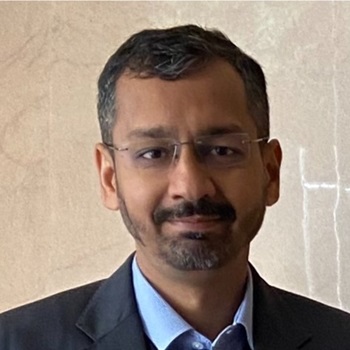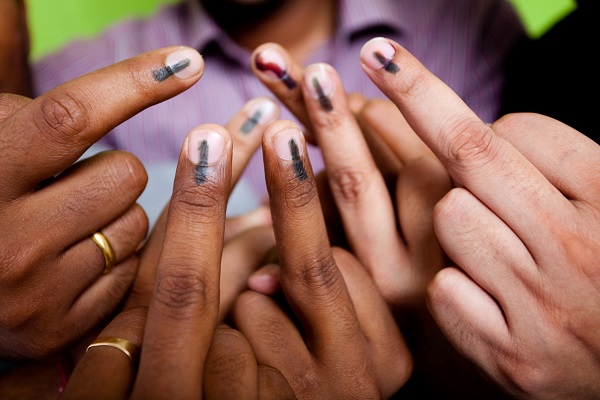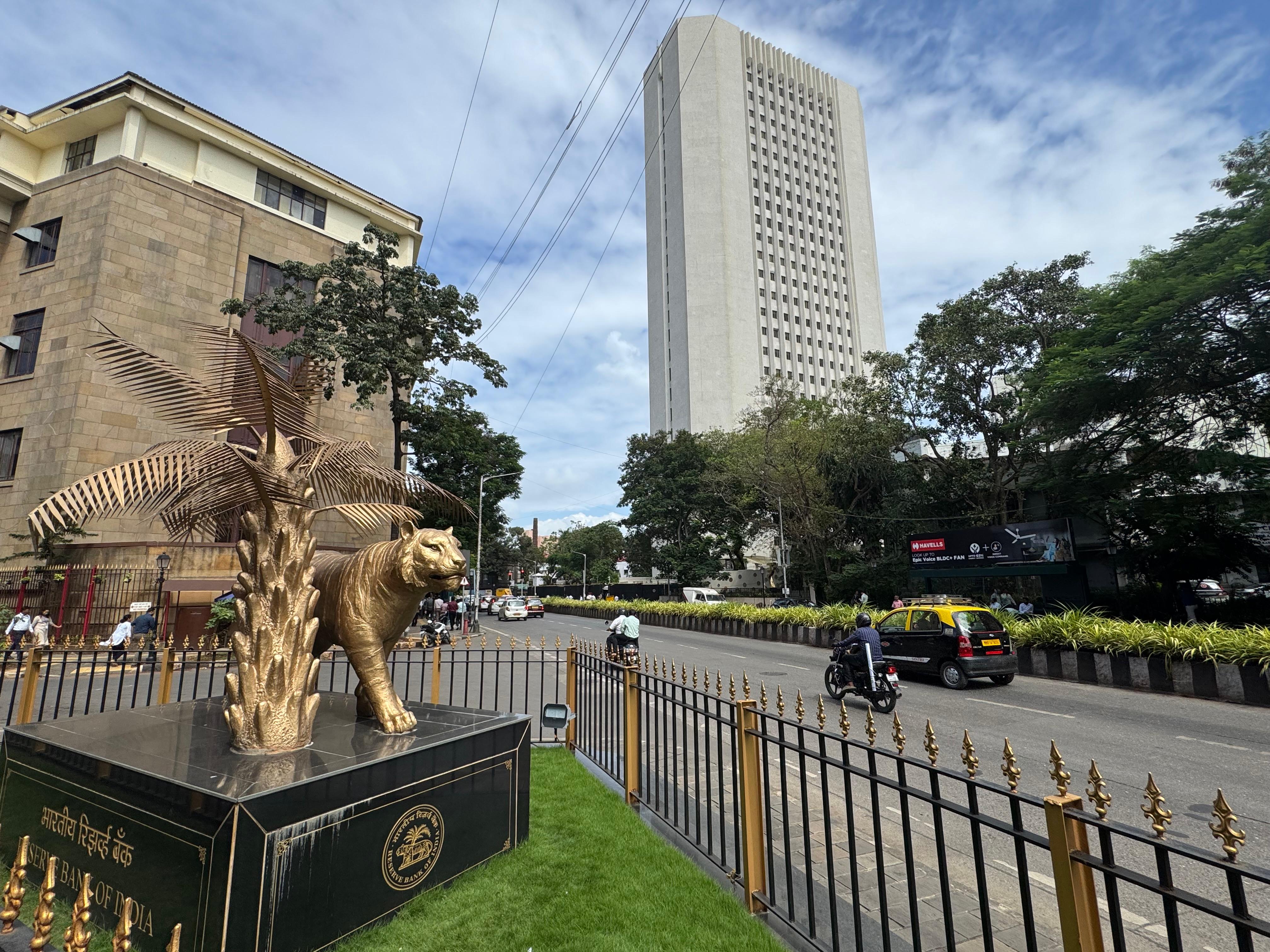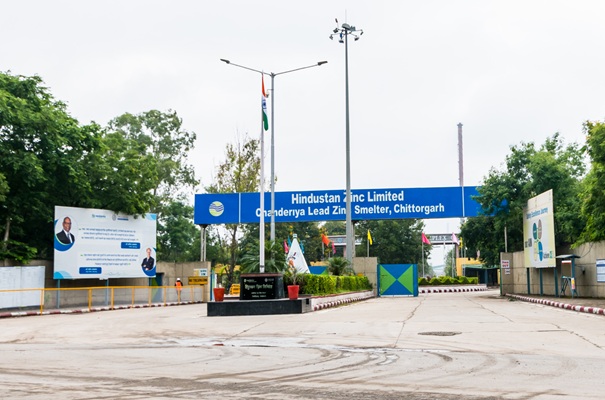.png)

By Srinath Sridharan
Dr. Srinath Sridharan is a Corporate Advisor & Independent Director on Corporate Boards. He is the author of ‘Family and Dhanda’.
October 15, 2025 at 7:45 AM IST
India has never been a country of neat binaries — yet it has never truly been a centrist’s paradise either. The comforting notion of “radical centrism,” as recently proposed, assumes that moderation can be a political ideology.
There is undeniable brilliance in Dr. Tharoor’s proposition and in him as a thinker. Few Indian intellectuals today command his range or his ability to translate complex ideological questions into civic language. His call for “radical centrism” stems from an earnest desire to rescue public discourse from polarisation and revive the liberal imagination of governance. Yet precisely because the idea is so elegantly conceived, it deserves scrutiny, not just for what it includes, but for what it omits.
But India’s complexity has never yielded to moderation. It has always demanded moral courage, conviction, and context, not an ideological via media that seeks to balance everything but stands for little. Ideologies cannot be stitched together like policies without tearing their moral threads.
Moderation, by design, is positional, not foundational.
What is right?
What is just?
What is worth preserving or changing?
Moderation defines itself only in relation to extremes. It is a method of negotiation, not a philosophy of purpose.
That is why moderation struggles to become a political ideology. It tells you how far to go, but rarely why to go at all. It privileges balance over belief, process over purpose. Once turned into doctrine, it risks paralysis, unable to take sides even when justice demands it.
In politics, people follow conviction (and many of them are flexible for their own electoral convenience), not calibration. Moderation may work as temperament in leadership but not as the guiding idea of a nation’s moral imagination.
The very term centrist itself oversimplifies India’s complexity. Our electorate is not a monolith that can be positioned neatly along a single ideological axis. It is a mosaic of motivations, from the indifferent “I don’t care” voter, to the disengaged “I don’t know,” or the transactional “whoever gives me something that day” to the ideologically steadfast, and from the uncritical loyalist to the habitual dissenter. These are not fringe categories but recurring realities that coexist within every constituency, often within the same household. To describe this layered and fluid political consciousness as “centrist” is to misread the texture of Indian democracy itself.
The appeal of centrism rests on the belief that India’s multiplicity can be governed through equilibrium. But what if that equilibrium is an illusion? What if the centre truly cannot hold — not because of extremism, but because it often fails to acknowledge the depth of India’s social, caste, economic, and cultural fissures?
Ideological Mirage
The argument that India is too complex for rigid ideology assumes we are trapped in doctrinal divides. Yet, the lived reality of Indian politics reveals something else: the absence of ideology, not its excess. What passes off as ideological conflict is often a contest for power and identity, not principle.
Across decades, parties have borrowed each other’s platforms, symbols, and slogans. Coalitions of convenience, rather than conviction, have defined survival. In this environment, ideological rigidity is a mirage; adaptability is the norm.
To propose centrism as a cure assumes India is being pulled apart by poles. In truth, India’s politics today is less about Left or Right and more about belonging and aspiration. We are still negotiating modernity through the prisms of caste, religion, community, and faith. Seven decades after independence, surnames still shape political legacies, and constituencies still vote by lineage. If legislative performance alone decided elections, most of our Netas would struggle to win.
Radical centrism, in this reality, risks becoming a drawing-room abstraction. India needs moral clarity: the courage to decide what must be preserved and what must be transformed.
The idea of “radical centrism” — combining the best of both extremes — sounds seductive. But in practice, centrism often collapses into comfort. When everything is to be balanced, especially in the harder Indian political terrain with its various differences, hard reforms are easily postponed, and accountability diffused even further.
Real leadership demands making difficult choices. History rewards those who stand for something. Centrism, when elevated to virtue, risks mistaking indecision for inclusion. It soothes where society demands surgery.
India’s progress has never come from moderation alone. It came from conviction: when Ambedkar challenged social orthodoxy; when liberalisation in the 1990s broke the inertia of state control; when reforms such as Aadhaar, IBC, UPI, GST, and MPC redefined governance. None of these were “centrist” impulses; each carried moral risk.
The Liberal Anxiety
The yearning for a “radical centre” is understandable. It reflects the fatigue of ideological contest and the anxiety of a liberal imagination that has lost its electoral anchor. After decades of being the default moral compass, India’s liberal tradition is now searching for a political language that reconciles its values with voter realism.
But the answer to polarisation cannot be the erasure of conviction. Democracies don’t heal by diluting their differences; they mature by debating them with civility and courage. Their vitality lies not in moderation but in moral friction — in the clash of ideas, not their quiet convergence.
Our deepest political chasm today isn’t between Left and Right, it’s between generations. For millions of young Indians, politics is no longer about ideology but about identity and opportunity. They are digital-first, globally aware, and impatient with legacy. They expect leaders who can perform, not pontificate. Their politics is transactional, not theoretical.
By 2025, India’s democracy is mediated more through screens more than speeches. Algorithms amplify outrage faster than arguments. The impatient youth constituency — connected, vocal, ambitious — seeks not ideology but efficacy. Their political lens is practical: who delivers, not who defines themselves as centrist or conservative. To preach moderation in a society still wrestling with caste privilege, religious prejudice, and economic disparity is to misread the urgency of change.
Plural Reform
India’s pluralism is not just a philosophical construct, but a lived, daily negotiation. Dr Tharoor is right that pluralism must be celebrated, not merely tolerated. But that celebration rings hollow unless we confront the hierarchies that still define it.
Caste still shapes opportunity, community dictates belonging, and religion defines exclusion. As participants in the modern capitalist world, we have also added newer forms of inequity. Slogans of unity ring loud, but lived equality remains uneven. To “celebrate diversity” without addressing inequity risks reducing pluralism to performance.
India doesn’t need rhetoric about coexistence. But we need actual efforts and reforms that redistribute dignity and opportunity. True pluralism demands courage to disrupt entrenched privilege, not just sentiment to admire difference.
The other unstated truth of Indian politics is that our era of governance is increasingly defined by individuals, not institutions. The electorate now votes for leadership, not merely a party symbol. This shift reflects a transition from ideological loyalty to performative trust. Voters seek a sense of purpose, not just policies.
When institutions blur, people look for clarity of intent — embodied in a single, centralised figure. The name, face, and voice of one individual can unify otherwise fragmented electorates.
This evolution mirrors corporate leadership. A CEO today is not just a manager; they are the face of the enterprise — the storyteller, the symbol, sometimes even the soul. Shareholders, employees, and customers rally behind that persona because it simplifies complexity.
Around the world, democratic politics has become post-ideological. From Emmanuel Macron’s France to Donald Trump’s America, from Rishi Sunak’s Britain to Volodymyr Zelensky’s Ukraine, electoral legitimacy increasingly rests on personality and performance rather than party orthodoxy.
That doesn’t make parties irrelevant, but it means that trust, in both politics and business, is now personalised. Citizens, like consumers, respond to conviction, not committees. The single face of leadership unites a complex electorate far more effectively than ideological consensus does.
Moral Economy
Centrism promises harmony between markets and morality, growth and welfare. But economics and ethics cannot always be balanced.
Economic choices are not arithmetic equations; they demand moral grounding. Whom does a subsidy favour? Whom does a reform burden? Whose future does a fiscal decision mortgage? These are ethical questions, not just technocratic ones. World over, governments often promise both — but end up delivering neither.
True inclusivity requires prioritisation — empowering those left behind, not just managing the contradictions of those already ahead.
In theory, election law sets hard boundaries for campaign spending. In practice, every voter knows that politics runs on resources far beyond those limits. What remains unspoken is how this contradiction sustains itself — how candidates, across parties and ideologies, reconcile declared norms with undeclared necessities. The day we resolve this contradiction — when transparency and trust meet at the ballot box — will be the day we can truly speak of democracy fulfilled. Until then, centrism or otherwise will continue to be viewed with a touch of cynicism.
Institutions matter. Federalism, checks and balances, and constitutional morality remain the bedrock of Indian democracy. But institutions draw strength from conviction, not consensus alone. Consensus is valuable, but it cannot substitute for vision. Leadership requires the ability to persuade, not merely to placate. Strong leadership must not weaken institutions; it must inspire them. India’s challenge is not to recentre politics, but to re-anchor governance in trust, truth and institutional integrity.
What India Needs
To govern India is to navigate competing truths. But equilibrium is not the same as equality. The heart of democratic governance is empathy — not equidistance.
If centrism means listening to all sides, it is welcome. But if it means standing apart, it risks moral vacancy. Leadership must know when to stand firm and when to reconcile, when to reform and when to resist.
India doesn’t need another ism, but a new ethic — one that prizes moral clarity over ideological convenience. A politics that adapts in method but not in principle; that listens widely but decides firmly.
A reimagined politics cannot emerge by simply blending the impulses of Left and Right, for each derives its strength from convictions that contradict the other. When synthesis becomes an end in itself, politics loses the moral architecture that gives it direction. Borrowing selectively from every side may appear wise, but it risks creating an ideology without integrity — a structure without soul. India’s next political ethic must move beyond this arithmetic of accommodation.
What India needs is not a doctrine of the middle, but a discipline of meaning — a framework that blends principled pragmatism with moral clarity. A leadership ethic that measures itself not by how well it balances competing sides, but how faithfully it serves public purpose. Governance must become value-based, performance-led, and citizen-trackable — where intent and impact are both visible, and accountability is personal, not procedural.
The next phase of India’s democratic maturity must rest on conviction with compassion — a politics that is empathetic without being evasive, decisive without being divisive. Flexibility can lie in method, but never in moral core. Our political renewal will not come from new shades of centrism, but from rediscovering the courage to do what is right, even when it is not popular.




